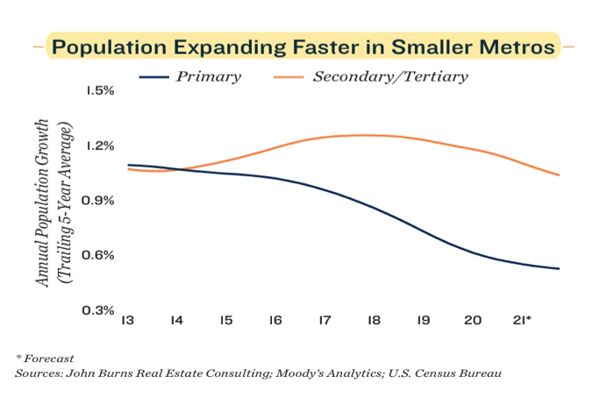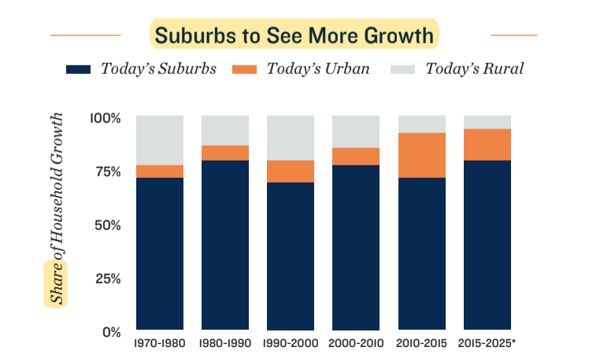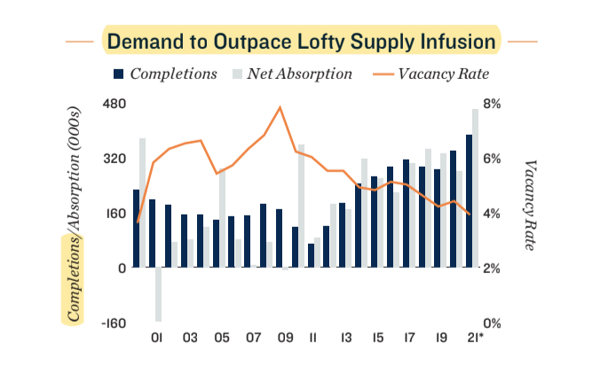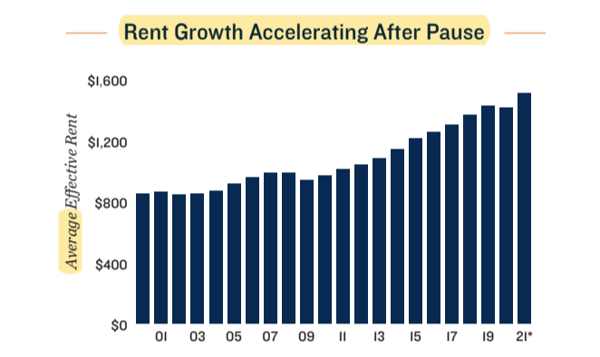Apartment properties are among the most popular when it comes to conducting a 1031 Exchange, and this sector is experiencing record growth in terms of consumer demand, as well as potentially providing a combination of rising rents and lower vacancies in select markets.
According to a new report from commercial brokerage firm Marcus & Millichap, demand for apartment units in the first half of 2021 was being fueled by increased hiring by businesses, and this trend is expected to continue in the second half of the year as well with more young adults forming households.
All told, some 6.5 million jobs could be created in the U.S. in 2021, which is the highest annual growth rate in more than 30 years. At the same time, continued business closings in challenged industries, a shortage of workers and the push for higher wages will delay the replacement of all 9.4 million jobs lost in 2020 due to COVID into next year.
The good news for the multifamily sector is that there is still plenty of room for employment growth to run, with more than 9.2 million jobs open as of May. According to a LinkedIn study, hiring in the U.S. in June was up nearly 68 percent year over year.
Where are employees and job seekers heading? Most are being drawn to Sunbelt cities like Austin, Nashville, Tampa-St. Petersburg, and Charlotte, which were at the top of the list of destinations in the LinkedIn study. The Southeastern part of the US up through Washington DC is also experiencing favorable growth trends.
Many apartment renters are migrating back into urban cores as well. Demand for downtown apartments is growing as the preferences acquired during the health crisis, which drove many prospective tenants to the suburbs, are subsiding. Also, store and entertainment venues are reopening, which is bolstering the appeal of living downtown. Still, growth in suburban apartment markets is strong. In fact, the suburbs were expected to generate a larger share of household formation prior to health crisis tailwinds.

Sources: John Burns Real Estate Consulting; Moody’s Analytics; U.S. Census Bureau
In response to the demand figures for both urban and suburban apartments, developers have been ramping up construction, pushing new supply into many markets across the U.S. But despite this, robust demand that results from employment growth and barriers to homeownership are expected to lower the national apartment vacancy rate to 3.9 percent by year-end 2021, thanks largely to tenants leasing nearly 460,000 units, which is up 64 percent from 2020.

Sources: CoStar Group, Inc.; RealPage, Inc.
As vacancy rates tumble, tenants are finding more competition for units and apartment landlords are raising the rents in response. While rental rates in 2020 dropped for the first time in over a decade, the average effective rate is expected to increase to $1,507 per month in 2021, which is a 6.8 percent jump over 2020 and will be the largest annual increase since 1998.

Sources: CoStar Group, Inc.; RealPage, Inc.
Investment sales of apartment buildings are experiencing much the same positive surge. As more renters seek out apartments in secondary and tertiary markets, buyers are following them. In the first half of 2021, sales in these less populated metros accounted for more than 60 percent of deal flow for the first time on record, replacing sales in primary metros which 15 years ago had claimed about 60 percent of sales.
Inflationary Expectations
A growing number of our clients are seeking to rotate out of properties that have fixed term leases such many NNN, retail and office type investments. The leases for these types of assets typically have caps on the amount of rent increases that can be passed onto tenants e.g., limited to 1-2% annually. Asset types such as apartments that perpetually leased allows landlords to have greater flexibility to raise rents as market conditions allow.
Talk to an expert at First Guardian Group today for more insight into apartment market trends and the use of 1031 Exchanges. You can contact us at 408 392-8822 or email at info@FirstGuardianGroup.com. You can also schedule a personal consultation with Paul Getty here.
Download our FREE ebook to learn more about real estate tax deferral strategies!
Help Save 1031 Exchanges
*The Tax Cuts and Jobs Act of 2017 allows real estate investors to fully write-off the cost of select new and used equipment, furniture, fixtures, and most land improvements in the year when the investment was made rather than requiring that the improvements be depreciated over time. This can be a powerful tool for lowering taxable income. Please consult your tax advisor to learn how you may benefit.









Your Comments :